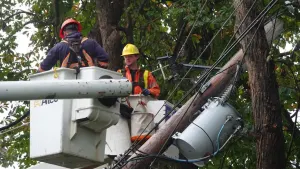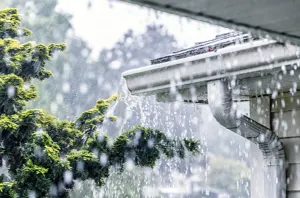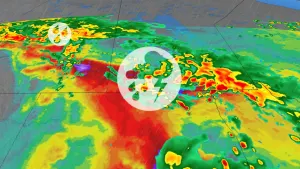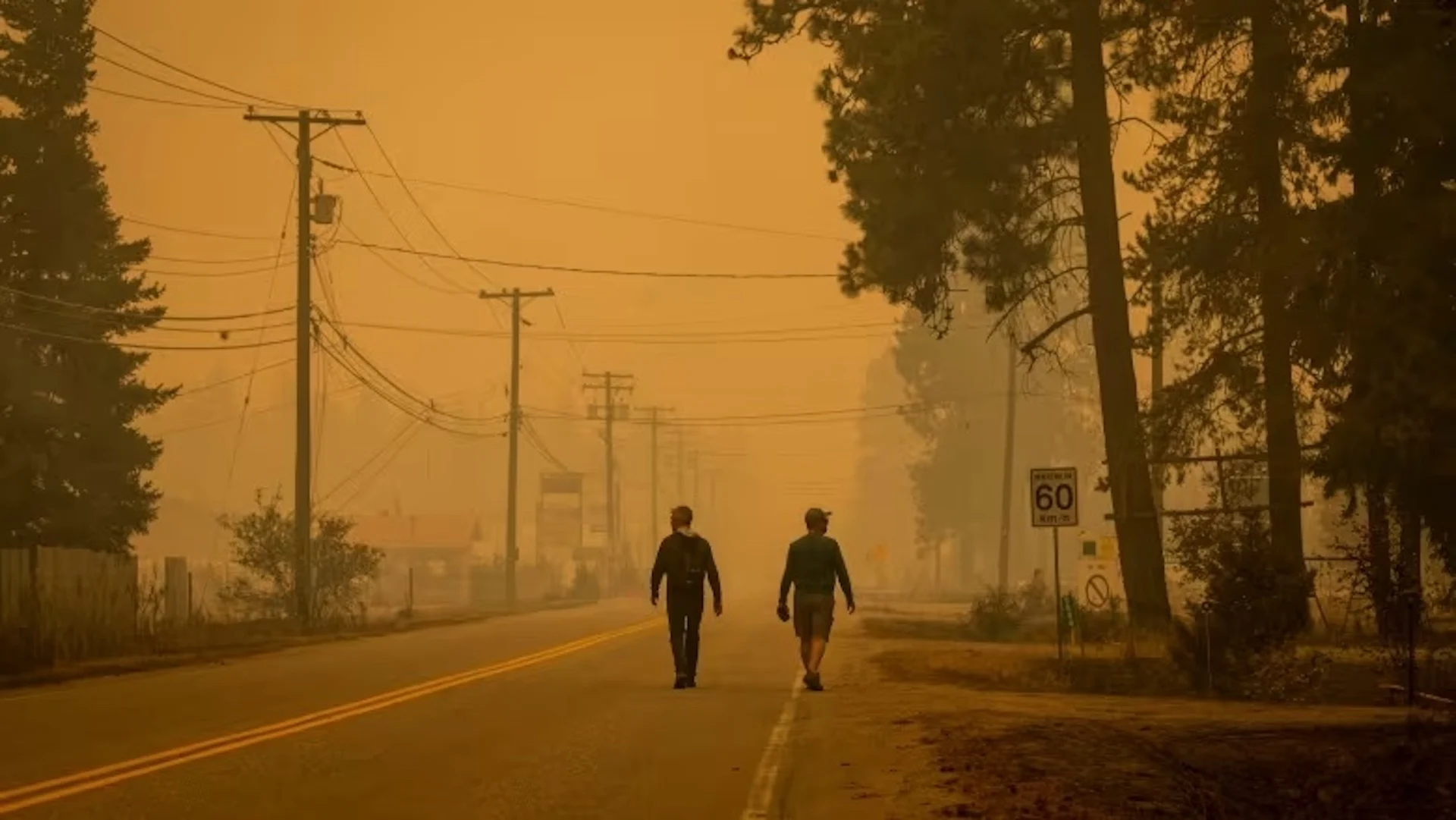
B.C. doubled its old wildfire record. Experts say we can take action now
It's official — B.C. has now more than doubled the previous record for area burned during a single wildfire season.
As the extreme weather of climate change makes destructive summers like this year's more and more likely, the province's independent forests watchdog is calling for radical action to make our landscapes more resistant to fire.
"The urgency is really unfortunate. The numbers this year are devastating. The casualties, loss of life is horrific," Keith Atkinson, chair of the Forest Practices Board told CBC News.
RELATED: 2023 officially the most costly, destructive wildfire season on record in B.C.
About 28,500 square kilometres of B.C. has burned so far this year, a huge jump from the 13,500 that burned in 2018. Two firefighters have died in the line of duty, and another four subcontractors were killed in a car accident on their way home from the job.
And it's not just B.C. This has been the worst wildfire season the entire country has seen in modern history.
Atkinson described 2023 as an "alarming" year for wildfires, but said it hasn't necessarily come as a shock.
"We know that there's a tremendous amount of forest fuel out there and high risk of wildfire across the province, so I'm not totally surprised."
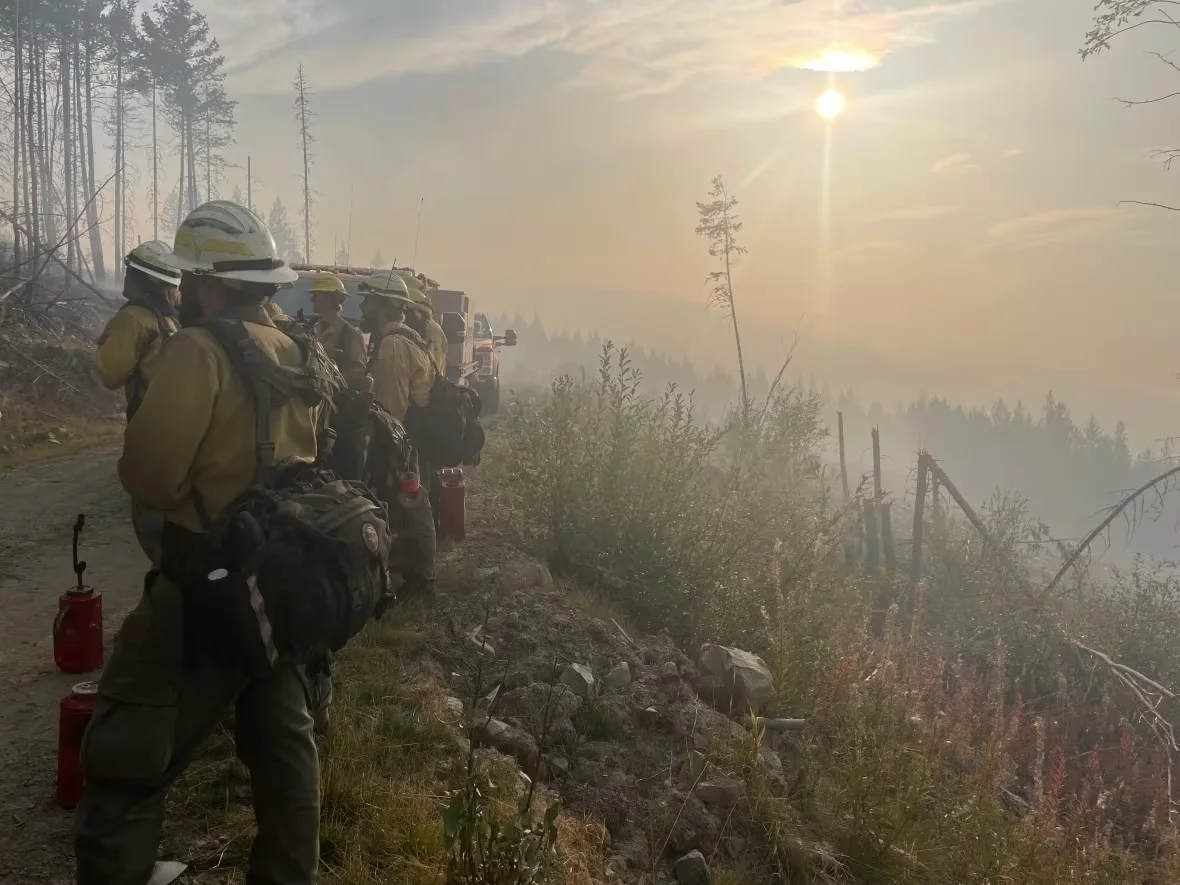
(BC Wildfire Service)
Wildfires experts say decades of zealous fire suppression tactics and forest management strategies have left the landscape littered with vegetation ready to ignite.
In June, as the wildfire season was ramping up, the Forest Practices Board released a report calling on the B.C. government to take "bold and immediate action" to change how the province's land is managed.
It urges the province to reject status quo practices that exclude fire whenever possible and prize dense monocultures of economically valuable but highly flammable evergreen trees, and move toward a world where people can co-exist safely with fire.
'Spending the money on the wrong end of the problem'
The scale of the proposed task is huge. According to the report, about 45 per cent of B.C.'s public land — more than 390,000 square kilometres — is at extreme or high risk of fire.
But the cost of inaction is even more immense, the Forest Practices Board argues. Not only are lives, homes, human health and livelihoods at risk, but fighting modern fires comes with a heavy price tag.
So far this year, B.C.'s firefighting efforts have cost more than $1 billion. In comparison, just $72 million has been spent since 2018 to remove potential fuels from 260 square kilometres, according to the board's report.

A wildfire burns near a home in the city of Kelowna, B.C., on Aug. 18, 2023. According to the Forest Practices Board's report, about 45 per cent of B.C.'s public land — more than 390,000 square kilometres — is at extreme or high risk of fire. (Ben Nelms/CBC)
West Kelowna Fire Chief Jason Brolund drew attention to the imbalance at a United Nations conference on climate change, where he was asked to speak about this summer's devastating McDougall Creek fire.
"Over $20 million was spent reacting to my fire, not to mention the insurance losses, which could be triple that," Brolund told the audience.
"What could we have accomplished if we used that same amount of money proactively? We're spending the money on the wrong end of the problem."
The Forest Practices Board's recommendations go well beyond the "wildland-urban interface" surrounding homes and businesses that have traditionally been targeted through fire prevention programs like Firesmart.
"Firesmart work is extremely important and valuable," Atkinson said. "But those [programs] aren't enough."
His organization wants to see action taken across the broader landscape, far from human communities.
That includes measures like thinning forests, encouraging the growth of more fire-resistant broadleaf species like aspen instead of actively destroying them, creating fuel breaks and carrying out more frequent prescribed and Indigenous cultural burning.

(Ben Nelms/CBC)
Atkinson says the goal is to ensure that when small fires are sparked in the wilderness, the conditions there don't allow them to pick up speed and become "catastrophic" as they approach communities.
'One of the transformative issues of our time'
These goals align pretty closely with those that have come out of conversations with experts and community members conducted by the Mitigating Wildfire Initiative at Simon Fraser University's Centre for Dialogue, according to associate director Yolanda Clatworthy.
"I think that this will be one of the transformative issues of our time, unfortunately, but … I do think that there's a lot of good momentum," she said.
Her group expects to release a report next week making a number of recommendations for the future, including the large-scale, landscape-level forest management strategies and increased planned burns recommended by the Forest Practices Board.
It will also call for bringing the forestry industry into the conversation, along with the public at large.
"What we mean by that is increasing … understanding of the critical paradigm shift that we're under and recognizing that it's no longer fire or no fire as a choice on the landscape," Clatworthy said.
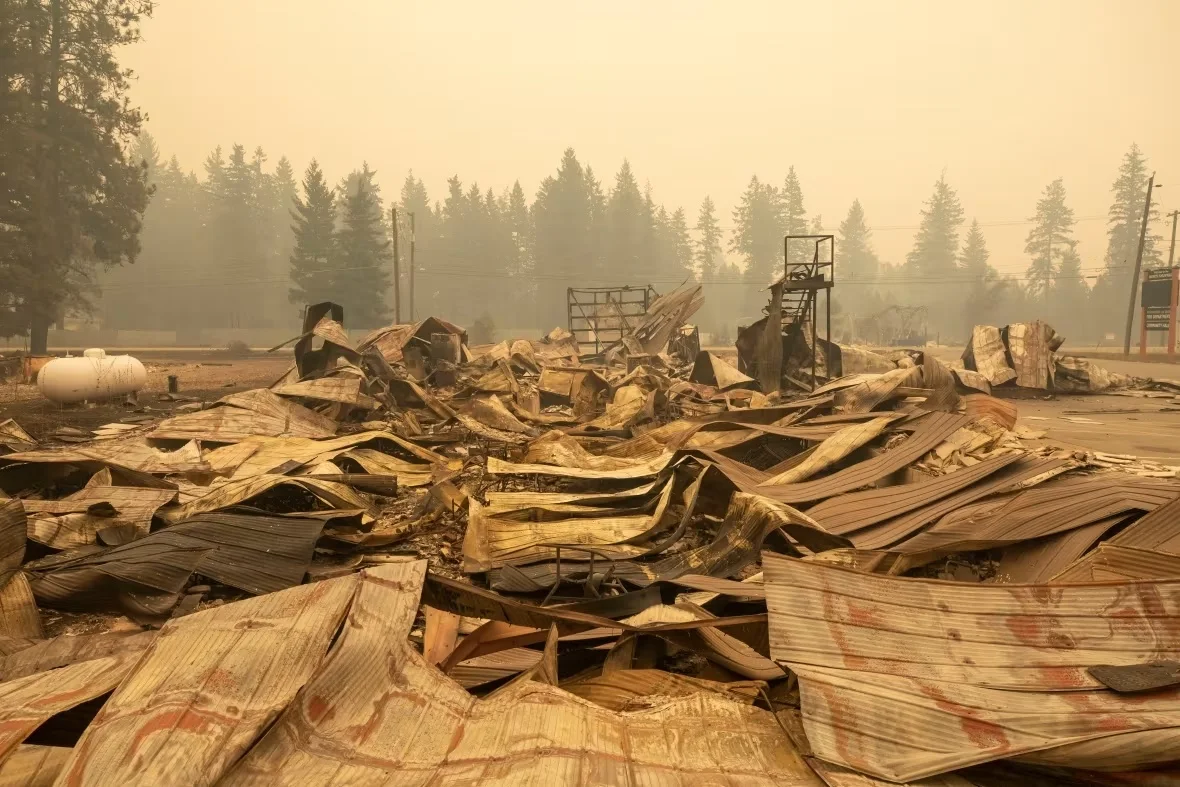
The Scotch Creek, B.C., fire hall is pictured after being destroyed by wildfire in August. (Ben Nelms/CBC)
"It's more, what kind of fire do we want on the landscape and how can we use fire to our best advantage?"
This week in the B.C. Legislature, Green Party Leader Sonia Furstenau confronted Forests Minister Bruce Ralston about how his government plans to prevent future wildfire emergencies.
She echoed Jason Brolund's words at the UN, asking, "Does he think that this government has been spending wildfire funds on the right end of the problem?"
Ralston replied by touting programs like Firesmart, telling MLAs, "There's great enthusiasm for expanding those programs."
The provincial government has yet to issue a response to the Forest Practices Board's recommendations.
WATCH: Summer 2023 was a season of records and astonishing sights
In a written statement, Ralston told CBC, "I recognize and appreciate the work of the Forest Practices Board," adding there were important points in the report released in June.
Ralston said the province is developing landscape-level forest management plans to address wildfire risk and expanding cultural and prescribed fire programs.
"We know there's more to do, and we will keep taking action with our partners and take the critical steps to strengthen wildfire planning, preparedness and response," Ralston said.
Thumbnail courtesy of Ben Nelms/CBC.
The story was originally written by Bethany Lindsay and published for CBC News.






